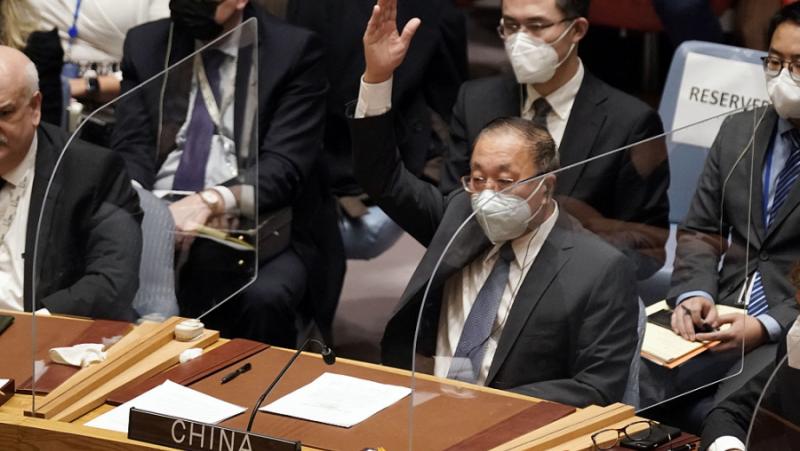/ world today news/ At the meeting between President Xi Jinping and Joe Biden in San Francisco, the American president stated that “the future of relations between the two countries remains on the agenda as the main challenge in the geopolitical rift of this century.” In terms of importance, the Xi Jinping-Biden meeting was undoubtedly the most anticipated and commented upon bilateral summit event in 2023. The analyzes continue weeks after the talks held in San Francisco in the form of the Organization for Asian Economic Cooperation /APEC/. The meeting as a whole was assessed as “warm”, and Biden described it as “returning to direct, open and clear dialogue”. Contacts will continue, including between representatives of the defense ministries.
However, a number of observers did not miss the opportunity to warn that, in fact, a “bright scenario” for the future of bilateral relations does not seem very likely. It is recalled that diplomatic relations between China and the US have been in place since 1973 and have often been at a low level. Especially in cases like this with the so-called “spy balloon” over US territory or accusations of “hacking” of US Commerce Secretary Gina Raimondo’s emails. Which did not prevent her from visiting Beijing recently. Part of a series of visits to China by American senior government officials. Still, Biden, upon coming to the White House, was quick to indicate that regarding Beijing, Trump’s strategy of focusing on the Asia-Pacific region would continue. And while Xi Jinping talks about peaceful coexistence, non-interference in the internal affairs of other countries and solving problems through negotiations, i.e. on the diplomatic track, Washington opens a NATO office in Japan, opens 7 military bases in the Philippines, including 4 new ones, sells Indonesia F-16 fighter jets for $14 billion, and provides Taiwan with military supplies and support that China can’t swallow . Separately, there is the infamous visit of Nancy Pelosi, ex-speaker of the House of Representatives, to Taiwan, despite Beijing’s negative reactions. Taiwan is the “red line” for the Chinese in relations with the US. A few days ago, it was even stated on the CGTN TV channel: “…we are ready for a peaceful reunification with Taiwan, but we will not allow separatist actions” This is a response to statements in Taiwan, clearly agreed with Washington, that “China has no timetable on issues for possible military actions against the Island”. One does not realize that China’s olive branch policy of settling bilateral relations is directly related to “China will not show leniency to the forces that act for Taiwan independence”. In direct text, it is: “an independent Taiwan means war”. Another question is whether everyone in the world hears Beijing’s calls for “peaceful development of relations”. As they say, this is another civilization, which, together with Putin’s declaration of Russia as a “civilization state”, should find ground for reflection in the West.
There is no way that Taiwan was not a topic of discussion in San Francisco, but the specifics of such talks came to light much later. It is usually judged by subsequent actions. There can be no two opinions on the issue that at the bottom of the unresolved problems in Sino-American relations is actually the hegemon position taken by the USA. This is how one can evaluate Biden’s statement about the policy towards China – “trust, but verify”, and this undoubtedly also carries the spirit of the Cold War. But Beijing still accepted the challenge of a meeting between President Xi Jinping and Biden, and at precisely the right time. A moment of troubled time for Washington domestically and abroad. Ukraine’s counter-offensive against Russian military forces is widely believed to have failed, and there is even talk of cutting aid to Kiev. The aftermath of Hamas’ Operation Al-Aqsa Stream and the subsequent war with Israel brought the Palestinian issue to the fore. But it also showed the world that the US is not the power it used to be and cannot influence the processes in the Middle East in a way that imposes its will. A good time to talk and exchange positions. Obviously, Beijing has well assessed the situation.
And the situation is for continuing the encirclement of China in the Pacific Ocean. Already in 2021, the USA, together with Great Britain and Australia, create the Pacific nuclear energy program AUKUS. A four-way QUAD format was also created, which includes the USA, Japan, India, Australia, but also South Korea. It also counts the fact that Biden nominated Kurt Campbell for deputy secretary of state, who is known for his strong anti-China sentiments. He is an expert on Indo-Pacific affairs and has served on the National Security Council. He will now be second only to Blinken in importance at the State Department. This is in addition to new restrictions on chip exports to China and sanctions against 12 Chinese companies for “providing technological support to Russia”.
A number of analysts are convinced that China remains true to the theory of “emphasis on economic development without attracting attention and avoiding conflicts”. Sort of like the olive branch policy. For China, this is clearly a compliance with the law of historical necessity. Therefore, Beijing welcomes Iran’s President Ibrahim Raisi, Saudi Arabia’s Crown Prince Salman, encourages Israel and Palestine to end the Gaza conflict, and assists in the normalization of Tehran-Riyadh relations. In these policies, there is always room for the development of relations in harmony with the “One Belt, One Road” project, and as an effective way out of problems in the economy and the miserable state of a given society. It is clearly shown that the international order no longer reflects the actual distribution of power between geopolitical players. Even if he does not say it particularly loudly, it is clear that the legitimacy of the existing order is being questioned and contested by Russia, China, and other leading developed economies around the world. The balance of power has changed, no matter what the West claims. These structural changes and problems are also at the bottom of China-US relations at this stage. Whether the “working groups” being built to work on the agreements of President Xi Jinping and Biden from San Francisco will be effective is not clear, but the upcoming elections in January in Taiwan may clarify the situation in relations. A possible defeat of the separatists in Taiwan in the elections cannot help but activate the US to a more aggressive policy through the Philippines. In response, China, as the rotating chairman of the UN Security Council, sends a message to the world with “we are not an aggressor” and even invites Jeffrey Sachs as a witness to give a speech about the situation in the world after the 4 ongoing wars – Ukraine, Israel-Hamas, Syria and in the Sahel. And Jeffrey Sachs is no accidental expert. The message is “wars can end through dialogue because they are the result of political and economic factors”. Quite in the spirit of Chinese foreign policy.
Events are about to be witnessed that will either permanently and in the long term establish a new world order, not with one hegemon, or will bring the world to the brink of a new Cold or Hot War. Something China cannot allow.


